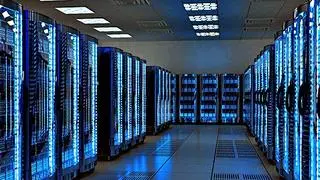Transformative technological solutions are increasing in the agricultural sector, leading to the rise of over 1,300 start-ups aimed at addressing the untapped potential of the agri-tech space. Up until 2021, India received investments of over $1.6 billion in agri-tech, being the third highest globally.
The use of drones in the agriculture sector has risen significantly, with several novel applications in aerial seeding, pesticide spraying and remote data collection for research. Future possibilities are limitless, where drones may even replace tractors one day!
India’s Drone Rules — regulations that authorise civilian use of the technology were only introduced in August 2021 and broadly categorise unmanned aircraft systems (UAS) based on a two-fold classification. Despite recognising autonomous UAS as a separate category, the Drone Rules do not provide any specifications or guidelines for such aircraft systems.
India’s agri-tech sector is increasingly leveraging this technology. In 2020, the Haryana government engaged pesticide-spraying drones to tackle locust attacks on crops. For this, an authorisation from the Ministry of Civil Aviation (MoCA) was sought by the Ministry of Agriculture and Farmers Welfare.
Some other prominent applications are aerial seeding, chemical and pesticide spraying (which not only avoids human contact but also the multispectral sensors identify optimum locations for application, enabling a greater degree of precision), aerial imagery and data collection on aspects such as crop health assessment, monitoring of water resources, soil analysis, damage analysis, livestock tracking, among others.
Regulatory points
Drone technology is a rapidly developing space and unsurprisingly, the regulatory environment is continuing to evolve and yet to take a concrete shape.
Registration requirements are fairly strict. Unless specifically exempted, each drone is required to be mandatorily registered with a unique identification number on a Digital Sky Platform (DSP). Any subsequent transfer of ownership of a drone, or a change to the flight control module or remote pilot station is required to be updated on the DSP.
Additionally, drone operators (other than small to medium-sized drones up to 2kg for non-commercial use) are required to hold a valid remote pilot certificate – which is non-transferable (even to employees of the same company with which such pilot is employed).
Privacy is a major concern that looms over the trajectory of this sector since aerial vehicles come equipped with sophisticated sensors and cameras.
Currently, the Drone Rules do not adequately address privacy concerns although, the Unmanned Aircraft Systems Rules 2021, which were in force briefly (until superseded by Drone Rules), imposed obligations on the drone operator to address privacy concerns.
The import of drones in completely-built-up, semi-knocked-down and completely-knocked-down forms (with limited exceptions for government-use, R&D and military purposes) has been banned by the government. That said, no such restrictions apply to import of drone components.
Drone technology is being viewed as a green alternative to certain conventional agriculture resources.
Businesses exploring drone technology could potentially attract investment from ESG-focused funds.
Maheshwari is a Partner, Choudhury is a Counsel and Thukral is an Associate at Khaitan & Co. Views expressed are personal








Comments
Comments have to be in English, and in full sentences. They cannot be abusive or personal. Please abide by our community guidelines for posting your comments.
We have migrated to a new commenting platform. If you are already a registered user of TheHindu Businessline and logged in, you may continue to engage with our articles. If you do not have an account please register and login to post comments. Users can access their older comments by logging into their accounts on Vuukle.